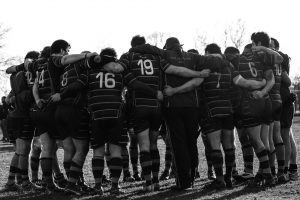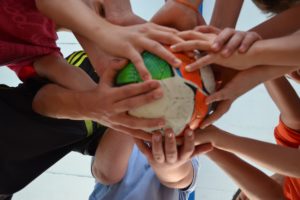2nd TRANSNATIONAL EUROPEAN SEMINAR:
“Preventing youth radicalization through sport: the impact of the Covid-19 pandemic”
The second seminar of the European project “Safe Zone” entitled “Preventing youth radicalization through sport: the impact of the Covid-19 pandemic” was held on 31st March 2021 by Zoom video conference, with two round tables involving experts from Germany, Italy, Portugal and Slovenia, and with the participation of sport technicians and trainers.
The SAFE ZONE project aims to contribute to the prevention of radicalization and violent extremism amongst young people in sports through a multi-agency approach as well as through increasing the awareness and skills of coaches and educators within sports.
The seminar has highlighted alarming data from across Europe: the pandemic has contributed to a dramatic decrease in sport enrollment and physical exercise and drastically reduced opportunities for socialization, increasing significantly the amount of time young people spend on the web.
Even before the pandemic, there were signs of a worrying trend towards a sedentary lifestyle among adolescents, but the data/information presented has confirmed the seriousness of the situation with regard to the health of young people. Physical health but also mental health, since the two dimensions are closely interconnected, as some of the speakers highlighted.
According to a survey conducted during the first lockdown among German teenagers aged between 11 and 17, it appears that 45% of the respondents spent more than 8 hours a day on the computer and 25% had completely stopped all sports activities.
This has also led to a deterioration in mental health: due to the impossibility of practicing sports activities, the sense of isolation has increased, especially in young adolescents, who are paying the highest costs.
Social unease/discomfort, anger and isolation have not only led to violence reported by the media in many cases, but have also caused/arisen a widespread and less visible sense of unease, especially among adolescents, who are even more vulnerable now. And it is precisely this vulnerability that makes them more exposed to the risk of radicalization.
Once the critical phase of the pandemic is over, according to the common opinion of the seminar participants, it will be necessary to recover not only economically, but also socially and culturally, intervening on the population and social groups most at risk, including children and young people.
Sport, together with school, must be a privileged space of intervention for this recovery, because of its potential to educate and develop the social and emotional, as well as the physical and motor, skills of individuals.
Moreover, it should not be forgotten that sport was one of the sectors most affected by the pandemic, and a major united effort will be required to ensure that Italian and European sport can resume providing children and young people with the leisure and socialization space they need to overcome the isolation caused by the lock-down.



